Nigerian journalist and Guardian chief executive officer Emeka Izeze told roughly 80 students and guests at The King’s College in New York City on Nov. 7 that violent Islamist group Boko Haram represents a battle of both religious and political ideas.
Emeka, who has worked as a journalist for 24 years, is one of Nigeria’s leading journalists and a board member of The Media Project. In his talk, “Behind the News: What You Haven’t Heard about Boko Haram,” Emeka explained how the group is driven by a clear agenda. “They are committed to changing the political order in Nigeria,” he said. More than insisting on religious conformity, Izeze explained that the group wants political revolution. “They seek to overthrow the Nigerian state and replace it with Islamic Sharia rule. They want to establish an Islamic Caliphate.”
He added that while international leaders refer to them as terrorists, that isn’t how Boko Haram sees themselves: [T]hey don’t see themselves as terrorists, but as...Muslim reformers and revivalists,” he said. This political and religious vision, he said, is the driving force behind their territorial advances, antagonistic behavior, and violence.
The U.S. Department of State declared Boko Haram a foreign terrorist organization in 2013. Among other violent acts, the group authorized a suicide attack on a United Nations building in Abuja in 2011. Between 2009 and 2014, they’ve killed more than 5,000 civilians and forced more than half a million to flee. They and maintains ties with other regional terror groups like Al-Qaeda. On the street level, Izeze said they’ve attacked churches and religious processions. They target schools, police stations and military barracks. They’ve forced thousands into fearful retreat -- in some towns, Izeze said locals cannot leave their homes past seven in the evening. As a result of the group’s violence, thousands of people now live in refugee camps, economies have stalled, businesses have closed.
Izeze said local and international leaders have struggled to contain the group’s extreme violence and rapid rise because they don’t comprehend the group’s ideological motivation. The name Boko Haram means, “Western Education is forbidden.” Izeze explained that this rejection of everything Western is what drives the group as much as a desire to spread Islam. He pointed to an interview with founder, Mohammed Yusuf, who explained the group’s perspective to local police: “All knowledge that contradicts Islam is prohibited by the almighty…I am only propagating my religion Islam.”
“When this...began...there were so many simplistic diagnoses as always,” he said. ‘People said, ‘oh, it was poverty that led them to this...others said it was employment...poor governance...corruption,’” he said. As a result of this Police and military forces have been unable to contain Boko Haram, stunned into retreat by their intense fighting tactics. International military forces became involved especially after the group kidnapped 267 school girls from a school in Chibok earlier this year. Those girls have yet to be found.
Ultimately, Izeze said the challenge for both government and journalists attempting to understand Boko Haram is for them to realize the battle against Boko Haram is something bigger than a socio-economic contest. “[It is] essentially a contest of ideas,” he said. “And it can only be won at that level.”
Gregory Alan Thornbury, president of The King’s College, concurs. “One of the hallmarks of good journalism is pursuing a story even after it has left the headlines. We are grateful that Emeka Izeze is coming to The King’s College to keep before our minds the horrific agenda of Boko Haram,” Thornbury says. “Months ago, the West was talking nonstop about the abduction of two hundred school girls from their school. Seemingly, some have forgotten. But with Mr. Izeze’s help, we will not and must not until justice prevails.”
The John McCandlish Phillips Journalism Institute trains students for careers in media. The Institute teaches journalism, supervises internships, and fosters a community of ethical reporting and writing among top journalists. The Institute also hosts several events each year for journalists working in New York City and offers a select number of spots each semester for student journalists to spend a semester at PJI in New York City at a prestigious news outlet and take classes at The King’s College. Apply here.
In the heart of New York City, The King's College is an accredited, Christian liberal arts college. Through the truths of Christianity and great works in politics, philosophy, and economics, we are educating the next generation of principled leaders for America.

